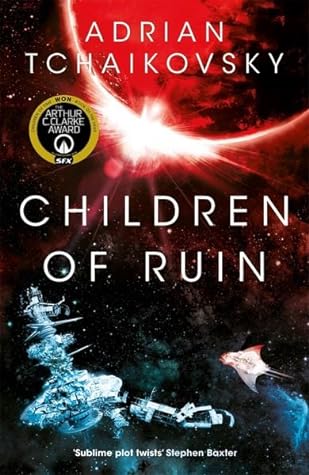In the aftermath of humanity’s expansion into space, a new alien intelligence emerges, forcing humans and uplifted animals to confront survival, communication, and the meaning of coexistence.
Children of Ruin by Adrian Tchaikovsky is the follow-up to the celebrated Children of Time, but it takes us in a new direction, literally. This time, humanity, alongside a group of evolved spider allies, discovers a distant world where life has developed under vastly different conditions. Here, they encounter an alien species that’s as strange as it is fascinating: an octopus-like being that experiences the world—and thinks about it—far differently than any human or spider. Through stunningly inventive storytelling, Tchaikovsky examines first contact, adaptation, and the fraught but compelling attempts to connect across species that perceive reality in fundamentally alien
While the novel is ambitious and packed with brilliant ideas, it occasionally slows down under the weight of its complexity. The sheer depth of scientific detail and philosophical tangents may feel dense to some readers, even dragging in spots. I admire Tchaikovsky’s dedication to scientific plausibility, but this makes for a less “bingeable” read than “Children of Time.”
This book is a fantastic choice for readers who relish science fiction that doesn’t shy away from big ideas and intricate world-building. If you’re a fan of authors like Arthur C. Clarke or Alastair Reynolds, or if you enjoyed Annihilation by Jeff VanderMeer, this one is sure to leave you thinking long after you turn the final page.
